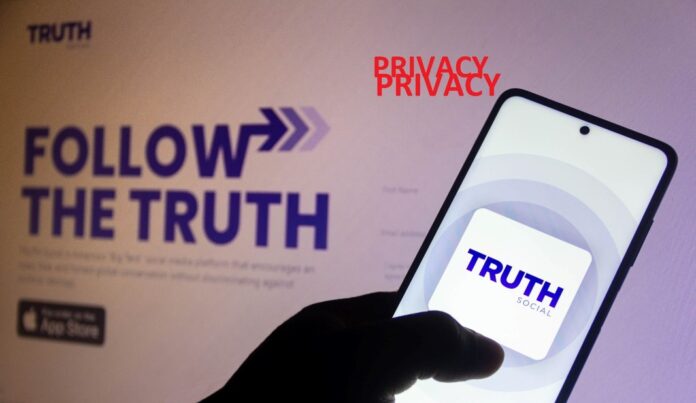Unprecedented Privacy Invasion: The Controversial Probe into Trump’s Social Media Activities
In a surprising revelation, special counsel Jack Smith has unleashed a controversial probe into anyone who has ever interacted with former President Donald Trump’s Twitter account, now known as X. This is an unprecedented privacy invasion. The Department of Justice, in court documents released on Monday, exposed Smith’s extensive list, encompassing individuals who liked, shared, followed, or merely mentioned the GOP frontrunner. This startling breach of personal privacy raises serious concerns about the balance between investigative powers and individual rights.
Smith, wielding what some perceive as unchecked power, swiftly set out to establish Trump’s involvement in alleged “election interference” activities leading up to the January 6th incident. The depth of Smith’s investigation reached unprecedented levels, with a warrant issued to access Trump’s ad preferences, account settings, support communications, private messages, and all IP addresses linked to his account.
The warrant further delved into the social connections of Trump, demanding the names of users he followed, muted, blocked, unfollowed, unmuted, or unblocked on the platform. Perhaps even more alarming, it insisted on obtaining “all information from the ‘Connect’ or ‘Notifications’ tab for the account,” including lists of users favoriting or retweeting Trump’s tweets and all tweets mentioning his username.
Issued by the U.S. District Court for the District of Columbia in January, the search warrant came with special instructions to keep Trump unaware of the extensive intrusion into his accounts. Remarkably, Twitter hesitated to comply with this directive, citing concerns related to First Amendment and Stored Communications Act violations. Judge Tanya Chutkan, overseeing the “election interference” case, sided with Smith and imposed a hefty $350,000 fine against Twitter for contempt of court. The D.C. Circuit Court of Appeals upheld this ruling in July, compelling the tech giant to conform.
Smith staunchly defended the secrecy surrounding his actions, arguing that notifying the “sophisticated actor with an expansive platform” would pose significant harm. He claimed that the non-disclosure order was essential to prevent the destruction of evidence, tampering with witnesses, or jeopardizing the investigation.
The Federalist’s editor-in-chief, Mollie Hemingway, condemned Smith’s request as a “dystopian nightmare” of government overreach. On the contrary, legal reporters like Politico’s Kyle Cheney attempted to downplay concerns, asserting that the specifics of Smith’s search warrant had been public knowledge for months.
However, Cheney’s assertion is challenged as conservative media renews its focus on the warrant’s details, particularly regarding Trump’s followers. The information initially surfaced on August 15 within a 207-page submission, but conservative media heightened its scrutiny when an identical version emerged on a different court docket on Monday night, with the last seven pages entirely redacted.
Despite reports in mid-August mentioning that Smith sought the identities of accounts liking or retweeting Trump’s posts, this information was overshadowed by the revelation that Smith had obtained 32 direct messages from Trump’s account. The extent of materials prosecutors acquired from Twitter remains ambiguous, leaving unanswered questions about its role in Smith’s investigation into Trump’s activities during the 2020 election.
Given that over 87 million users followed Trump’s account, it is estimated that millions of individuals have had their information collected. However, the full scope of the data and its relevance to the investigation remain uncertain. A court order on November 29 temporarily blocked attempts by X or media intervenors to access details about the heavily redacted search warrant. Chief Judge James Boasberg of the U.S. District Court for the District of Columbia justified the block, citing an “undeniable need” to safeguard Smith’s investigation from harassment and intimidation.
The situation raises concerns about the Department of Justice’s priorities, seemingly neglecting the undeniable need for protection against invasive searches. This becomes even more apparent as the DOJ attempts to construct a case against an unpopular GOP challenger, leaving Americans questioning the balance between national security and individual privacy.
- Pet Friendly Ice Melt for Snow: Our pet friendly ice melt for snow is designed to quickly and efficiently melt snow and ice, while being safe for pets to walk on. It's the perfect choice for keeping your pathways clear and safe for everyone in your family, including your pets.
- Quality is Key: Our snow and ice melt won't sacrifice the quality of standard rock salt for snow and other winter salt products. Paw Protector dog safe salt melt melts snow and ice at temperatures as low as -22 degrees fahrenheit.
- Keep Your Driveway Clean and Clear: Our ice melt for concrete leaves NO visible residue, unlike other pet safe ice melter products. Avoid excessive stains to concrete to maintain a cleaner appearance!
- Concrete Safe Ice Melt: Melt snow with a product that is far less corrosive than rock salt and calcium chloride ice melt. Keep your concrete safer from cracks and other winter stresses.
- Think of your Neighbors: When choosing an ice melt for snow always remember to use a pet friendly product to keep everyone in the neighborhood safe, whether they have four legs or two!
- Pet Friendly Ice Melt: Our product is designed with your pets' safety in mind. This ice melt is pet friendly, ensuring that it won't harm your furry friends when they come into contact with it during their outdoor adventures.









